16:00 Welcome and opening remarks
Hans van Bochove, EUROPEN Chair
16:10 Unwrapping PPWR - New requirements and key compliance milestones
EUROPEN Secretariat
17:10 Q&A
17:30 New Circular Economy Act - what's left to shape the future of packaging circularity
EUROPEN Secretariat
17:40 Q&A and wrap-up
18:00 End of workshop
Tickets are just €349 + VAT, and must be purchased in conjunction with a 2-day conference ticket.Join us on a tour of the Pacs del Penedes, Torres winery. Catalunya’s foremost winemaking family in their 5th generation of wine production, the Torres family is leading the charge for sustainable winemaking. Torres winery is known for its stunning Cabernet Sauvignon ‘Mas Le Plana,’ which is famous on the global stage.
You will enjoy a visit to the Mas La Plana vineyard, a visit to the Waltraud cellar, and pairings of wine and snacks. All with one of their wine educators.
Limited tickets available - please email Sharleen at slabonte@smithers.com to book.
Join us on a sightseeing bus tour of some of Barcelona's major attractions. You will have the option to sit on the top deck of the bus for a 360° panoramic view of Barcelona's best sights, or sit on the bottom level for a more shaded option.
There will be a knowledgeable local guide on board the bus who will talk through the sights, with the route including:
Limited space available - please email Sharleen at slabonte@smithers.com to book.
Join talks with industry peers during lunch, share ideas, make connections and find new partners. Each roundtable discussion group is hosted by an industry expert on a specific topic offering you a valuable opportunity to network, brainstorm solutions and discuss ideas.
Round table discussion will take place from 13:30-14:00, level -1.
Round table 1: EPR harmonisation: bridging policy gaps for a cohesive circular economy
Moderator: Romane Colleu I European Affairs Manager, Citeo
Round table 2: Packaging at risk: Identifying environmental, regulatory, and supply chain pressures
Moderator: Laura Peano I Global Plastics Lead, Quantis
Round table 3: Surviving circularity
Europe’s recycling industry is in dire straits: capacity is at risk as virgin undercuts PCR and demand signals remain weak. This roundtable focuses on what brands and converters can do in 2026 to prevent capacity loss and secure reliable supply ahead of the PPWR.
Moderator: Marcel Alber I CEO, Healix
Round tables 4: How to confidently communicate decarbonisation progress in a rapidly changing ‘green claims’ landscape
Moderator: John Newton I Label & Assurance Commercial Director and Chemical Sector Lead, Vivien Mc Ewen, Packaging Sector Lead and Commercial Label Lead, Carbon Trust
Round table 5: From business transformation to market transformation: Making the economics work for a circular economy for plastics
Moderator: Sander Defruyt I Lead of Strategy, the Ellen MacArthur Foundation's Plastics Mission
Moderator: Hugo A.J. Vuurens I VP Business Development PHA Biopolymers, CJ Biomaterials
Beyond Plastic: Hygiene packaging redefines sustainability and sensory experience
Alexandros Skouras I Segment Director, Paptic
Revolutionising packaging with roll-to-roll ALD: ultra-high barrier solutions for flexible packaging materials
Sandra Wiegman I Lead Business Development, Kalpana Systems
Scaling truly plastic-free materials with natural plant polymers
Real world case studies of morro materials being used in market with global players such as Just Eat Takeaway.com and Bunzl
Marc Rodríguez Garcia I CTO, Xampla
Closing the gap between sustainability and cost
New fibre material development beating plastics
Forming technology going deeper
Fiber applications replacing rigid plastics
Ulrika Ganterud Evermark I CCRO, Blue Ocean Closures AB
Dragons’ den jury:
Fredric Petit I Partner, Emerald (Investor)
Hugo A.J. Vuurens I VP Business Development PHA Biopolymers, CJ Biomaterials
Janet Preston I Senior Scientist, Artemyn
Moderator: Fredric Petit I Partner, Emerald
Sustainable packaging starts with data: avoiding pitfalls & optimising compliance
Vivian Loftin I Co-Founder & Managing Director, Recyda
Advanced reusable solutions
Dr. Tim Breker I Co-Founder & Managing Director, VYTAL Global GmbH
Smart packaging to reduce food waste & ensure safety
María Eugenia Martín Hidalgo I CEO & Co-Founder, Colorsensing
DRAGONS-DEN JURY:
Fredric Petit I Partner, Emerald (Investor)
Gizem Narin I Functional Lead Tecnical Packaging, METRO
Carlos Ludlow-Palafox I CTO, Greenback Recycling Technologies Ltd.
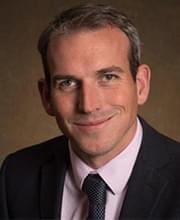

Ciaran is responsible for delivering Smithers global growth initiatives and supporting Smithers Asian client base.
Ciaran has been working for Smithers for nearly twenty years supporting the packaging, print and paper value chains with key market and technical information in the form of conferences, reports and consulting. Ciaran has worked on winning and delivering a wide range of market consultancy projects to major industry players, recent projects include a global assessment of printing and packaging growth trends and market assessment for a major new product launch for one of the world’s largest packaging converters.
Ciaran has launched and managed many international conferences in this sector including Digital Print for Packaging, SustPack, Specialty Papers and Print Futures.


Natasha is a Utrecht-based analyst working for the F&A Supply Chain team.
Prior to joining Rabobank, Natasha worked as a Markets and Supply Chains researcher at LEI Wageningen University. In this position, she conducted research on a wide range of F&A sectors, such as poultry and dairy, as well as on a number of overarching food supply chain themes, like food safety.
Natasha started her career in 1999 as Quality Assurance Manager at a baby food production plant (part of Royal Numico) in Moscow. From there, she moved to the Netherlands to work on her Ph.D. at Wageningen University, focusing on the economics of food safety and traceability in the Dutch dairy chain. During this period, she was also a visiting researcher in the US and Australia. In addition to her Ph.D., Natasha holds a MSc in Agricultural Economics from the Russian State Agricultural University (Moscow Timiryazev Agricultural Academy).


Alex leads Ipsos’ Product & Pack Testing specialism for the UK. He has 30 years of research experience, with the last 13 delivering pack, product, and innovation testing research to some of our largest global CPG clients.
As an innovation research specialist, Alex is responsible for supporting Ipsos’ teams and clients in delivering best practice guidance, promoting the breadth of our expertise, and updating and innovating our research tools for the future. He has spoken previously on recommendations for best innovation practice, and specifically on the topic of sustainability in the context of pack and product innovation.
Ipsos is one of the world’s largest market research agencies. We provide true understanding and make our changing world easier to navigate, so that our clients can make faster, smarter and bolder decisions. Ultimately, success comes down to a simple truth: "You act better when you are sure".

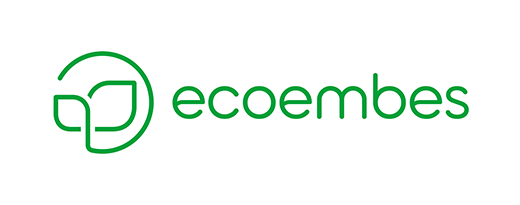
Marcos Sánchez, PhD in Chemical Engineering since 2015, and currently works as an Innovation Specialist at ECOEMBES. He is actively involved in projects aimed at enhancing the recyclability of packaging and promoting circularity, giving materials a second life through sustainable solutions.


Paul has huge experience in all aspects of packaging and has an exceptional understanding of packaging materials, and processes. Paul developed Tesco strategy for packaging sustainability including the creation of preferred materials and formats guidelines.
Currently working for Tesco with responsibility for the non food area for both Own Label and Branded products. Has previously been responsible for the Tesco Packaged Food areas as well as Household and Personal Care.
In his personal life Paul is Chairman of the Thriplow Daffodil Festival – an annual charity event which has raised over £1m to date.
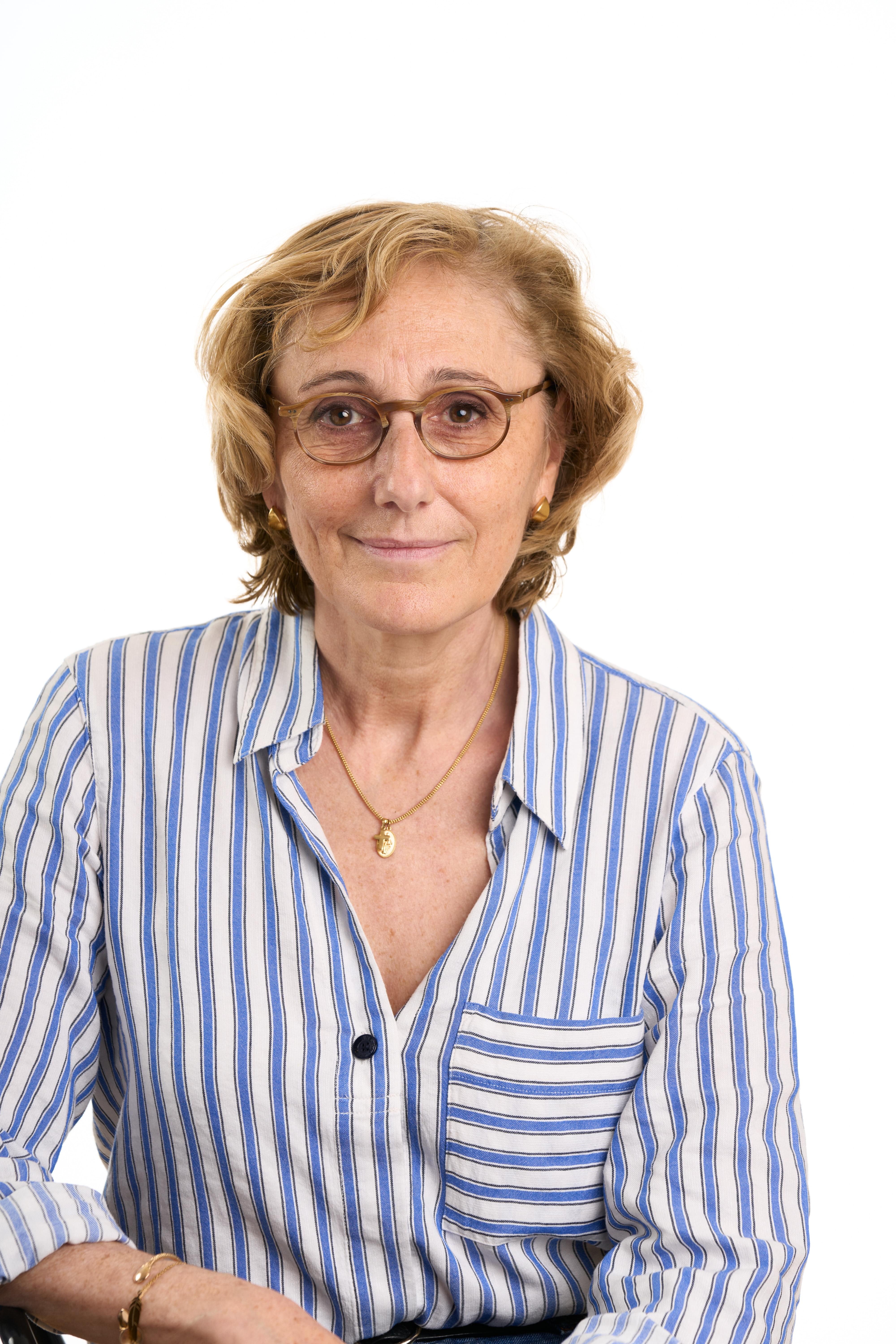

Anne Guillou is an Expert in Packaging Recyclability & Reuse at L’Oréal. She has a strong background in Cosmetics having worked over 20 years and a large international experience having lived & worked in several countries. Her job is to build L’Oréal worldwide strategy to develop recyclable packaging and reuse models best adapted to the specifics of Cosmetics

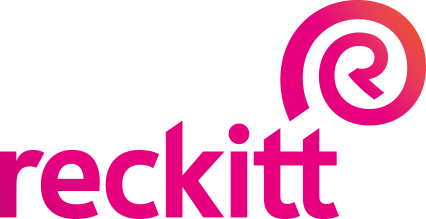
Alejandra is sustainability packaging manager at Reckitt, with strong experience in Quality, Packaging development and a background in Production/Industrial Engineering.
Skilled in Supplier development, packaging development, project management and sustainable packaging.
She belongs to the Global Packaging Sustainability Team that leads strategic direction for deploying new packaging materials and sustainable projects to meet Reckitt’s sustainability goals for 2025-2030.
Previously, she was Cluster Packaging Manager 2018-2022, where she led supply packaging teams across factories.
She has been with Reckitt for over 12 years, with previous experience in companies as Greif Packaging, Delphi and Steris Corporation.
Born and raised in Mexico, living in Barcelona over the last 15 years.
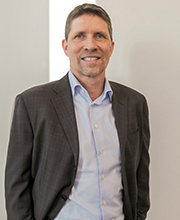

Gerald Rebitzer is responsible for Sustainability at Amcor Flexibles Europe, Middle East and Africa and Amcor Flexibles Americas.
From 2007 to 2009 he was head of product-related sustainability management at Alcan Packaging, globally. Prior to this, he had several roles related to EHS and sustainability within Alcan, focusing on the various aluminium production and fabrication businesses (2003 – 2007). Gerald has over 20 years of experience in implementing sustainability initiatives and life cycle approaches in sectors such as Packaging, Building and Construction, Automotive, Aerospace, Electronics, and Metals.
He holds a Ph.D. in Life Cycle Management from the Swiss Federal Institute of Technology Lausanne and a Masters in Environmental Engineering from the Technical University Berlin. He is editor for The International Journal of LCA, member of the Executive Committee of the Sustainable Packaging Coalition, and chairman of the Sustainability Committee of Flexible Packaging Europe. Gerald was also member of the Steering Committee of the WRI/WBCSD GHG Protocol’s Product and Supply Chain Initiative and was active in the board of the UNEP/SETAC Life Cycle Initiative. Gerald has published more than 120 papers in the area of life cycle thinking and sustainability and regularly speaks at international conferences.


Hester Klein Lankhorst is Chair of the Board of Directors of Verpact. Klein Lankhorst studied law at Utrecht University, after which she entered the legal profession. After this period, she became a policy officer at the Ministry of Infrastructure and the Environment, where she focused on sustainability and later on waste management. From 2012 to 2018, she was director of KIDV, the Sustainable Packaging Knowledge Institute. This organisation helps and advises companies in making their packaging more sustainable. She then spent two years as an entrepreneur at consultancy and investment company Rebel Group, helping organisations make informed and realistic choices in the circular economy. In 2020, Klein Lankhorst made the switch to the Packaging Waste Fund (now Verpact).


Juan Manuel is the Head of EU Sustainability Policy at Amazon and leads the implementation of the CE advocacy strategy for Amazon in Europe. He is also registered as External Expert for the European Commission (DG REGIO) on Environment, Circular Economy and Resource efficiency, Social Innovation and Entrepreneurship and Fundamental Rights. He is also collaborating as Mentor with the University of Helsinki in their Biosphere program and visiting lecturer at the University of Carlos III. Juan Manuel holds a Diploma in International Relations at the London School of Economics (LSE) & Univ. of London, a Master’s degree in Environmental Education and a second one in European Studies and a Bachelor Degree in Psychology from the Univ. of Granada.


At the helm of The Porto Protocol Foundation since 2019, Marta connects global wine producers and experts to advance collaborative climate action in viticulture. With a background spanning a variety of industries—including wine & spirits—she previously founded a consultancy to promote sustainability and climate advocacy. Marta holds degrees in International Relations, Marketing, and Corporate Social Responsibility, working at the intersection of climate, communication, and regenerative winegrowing.
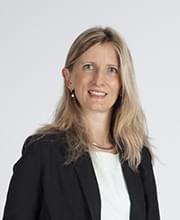
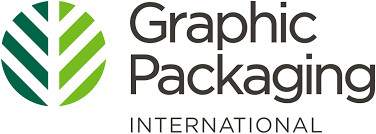
Elodie holds a Master of Engineering in Material Science and a PhD in Polymers and Composites, backed by 22 years of experience in sustainable materials within chemical multinationals as well as coordinating research and innovation programs with a strong focus on circular economy. Since 2020, she has driven Graphic Packaging sustainability roadmap for Europe, aligning with global strategies and regulations. She is also involved in different partnerships including 4evergreen, from which she is an Ambassador and where Elodie has led innovation efforts and contributed expertise across various workstreams.
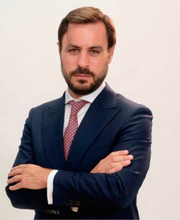
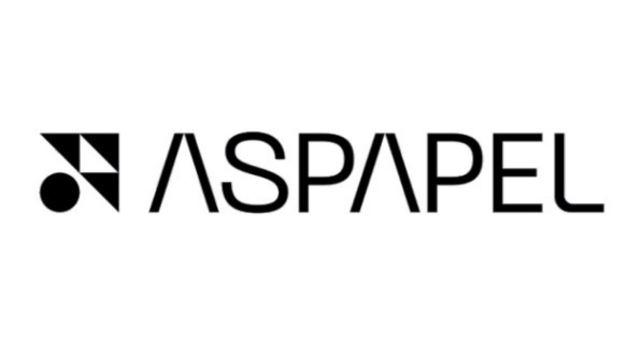
Manuel Domínguez is an executive and academic leader specializing in sustainability and industry. He holds a degree in Environmental Sciences from the University of Huelva, complemented by postgraduate studies in Advocacy & Public Affairs at Comillas Pontifical University, Corporate Leadership at the University of Deusto, and ESG & Circular Economy at IE University.
He currently serves as Director General of ASPAPEL (Spanish Association of Pulp, Paper and Cardboard Manufacturers), where he leads the sector’s strategic development, sustainability agenda, and institutional representation at national and international levels. At the same time, he is a professor at the School of Forestry of the Polytechnic University of Madrid, contributing to the training of future professionals in environmental and forestry sciences.
With extensive leadership experience, solid academic involvement, and a strong commitment to the circular economy, Manuel Domínguez bridges industry, policy, and education to foster sustainable transformation.
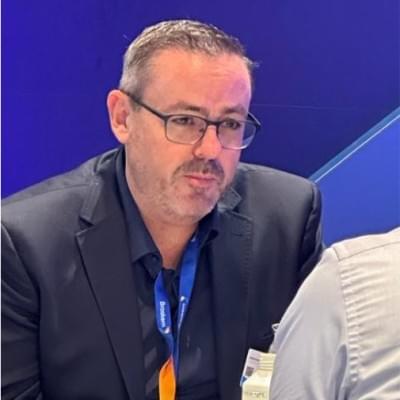
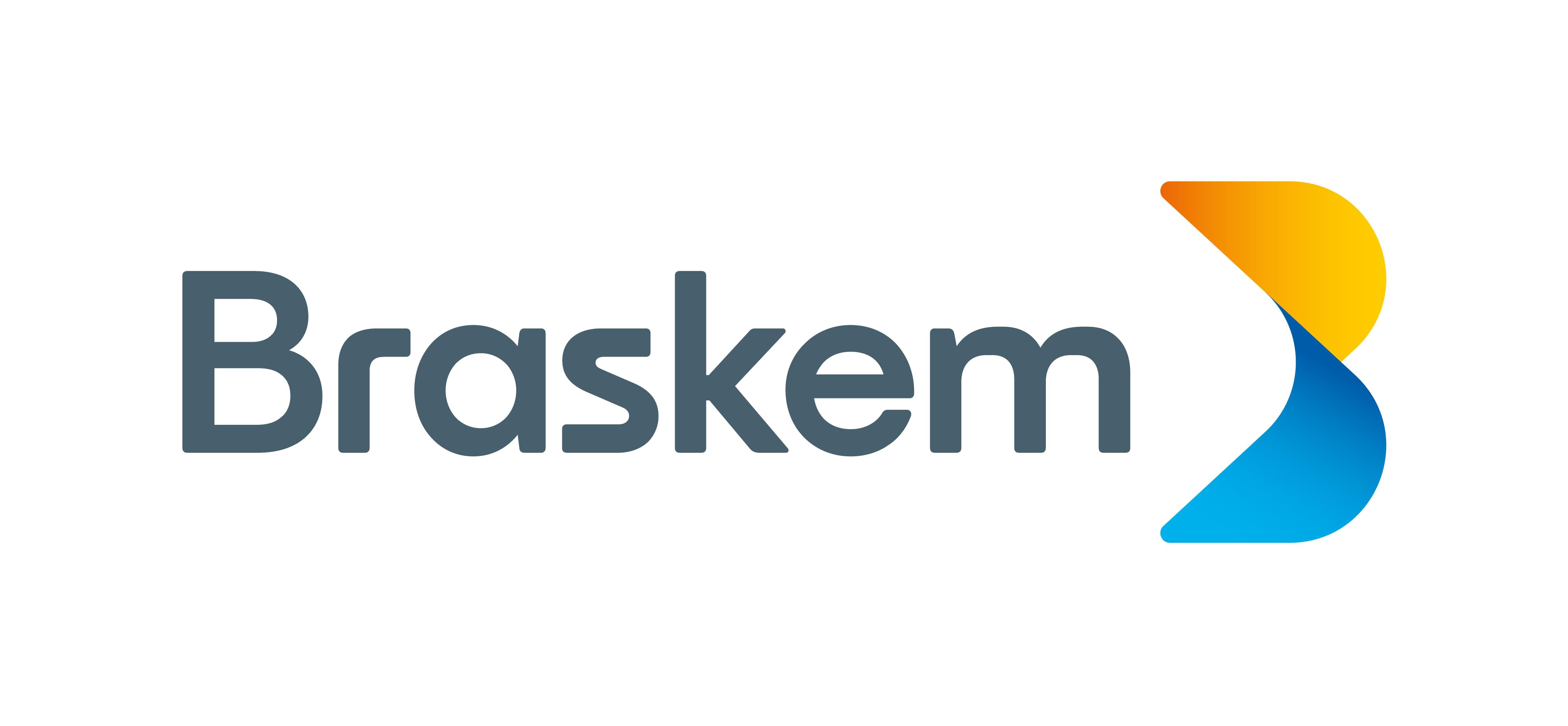
Bio to follow
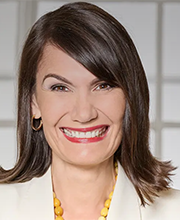

Katja Wodjereck is Chief Commercial Officer for Vioneo and leads Vioneo's commercial strategy with a key focus on global business, partnerships and advocacy. Her career has been defined by her continued passion to leverage impact through innovation and technology to address the world's most pressing environmental challenges.
Before Vioneo, she served at Neste, where she joined as Executive Vice President of the Renewable Road Transportation division in April 2023 and was later appointed Executive Vice President of Renewable Products in November 2023.
Prior to her tenure at Neste, Katja Wodjereck held various leadership positions at Dow, including serving as President and General Manager of DACH, as well as holding several board positions.
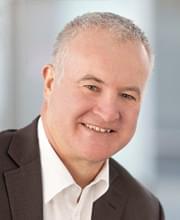

Graham is the Managing Director of SLOOP Consulting B.V. which has been offering consulting services and tools in the field of packaging and sustainability since 2009.
He is the founder & project co-ordinator for CEFLEX (a Circular Economy for Flexible Packaging), which is a collaborative initiative by over 170 companies and associations from across the flexible packaging value chain to make flexible packaging even more relevant in the circular economy.
Prior to 2009, he worked for Unilever for 23 years with a wide range of responsibilities including: R&D, Packaging management and design, Supply chain restructuring, Sustainability and CSR.
When not helping clients to make their packaging more sustainable, he enjoys being outdoors, BBQ’ing, restoring an old house and trying to fend off Father Time by keeping fit.

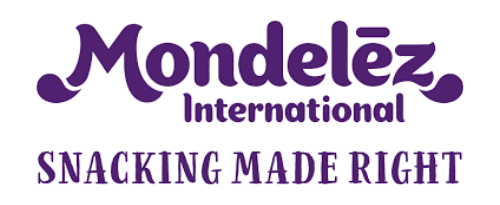
Richard has over 20 years of R&D leadership experience in global food FMCG companies such as Mars, McCormick and Mondelez International. Senior roles in product and packaging development, process technology, quality and productivity, as well as early career experiences in manufacturing and marketing have provided him with a broad cross-functional business perspective that is essential for leading innovation and change in sustainability.
Since the beginning of 2022, Richard has taken up the challenge of leading Mondelez’s R&D packaging sustainability strategy and programme for the European region, with brands including Cadbury®, Milka®, Philadelphia®, Oreo® and Belvita®.
He is a passionate advocate for sustainability and how, only by working together, we can eliminate packaging waste and create a fully circular economy for all packaging.


Suguna runs client projects and oversees laboratory operations to ensure the quality of test data and efficient project delivery. An active member of the Royal Society of Chemistry, she is a highly accomplished scientist with more than ten years of experience in method development and validation across a number of industries. Suguna’s specialism is managing ink-related projects and analysing and risk assessing non-intentionally added substances (NIAS). She leads method development and validation projects with a focus on understanding new or novel materials.

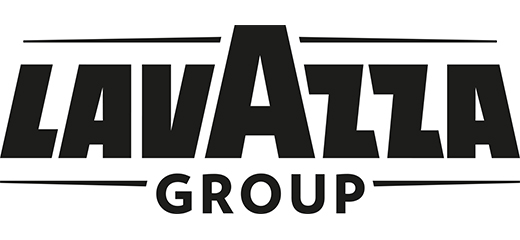
Manuela Malerba is a Sustainable Packaging Specialist at Lavazza Group. With a background in Chemical engineering and Sustainable Processes applied to the Food/Biotech industry from Politecnico di Torino, she joined the R&D Product Sustainability and Circular Economy Team at Lavazza in 2021. Passionate about pack technology and eco-design, she works on the strategies and monitoring of the roadmap for sustainable packaging, and the practical application of Circular Economy principles.
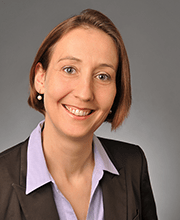

Elizabeth is the Global Packaging Sustainability Manager at H.B. Fuller. With a passion and focus on sustainable packaging solutions, new packaging design and e-commerce and extensive knowledge of the packaging industry and B2B marketing experience, Elizabeth acts as a connection between market and technology, customers and research and development.
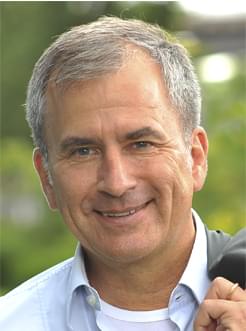

• Born Febuary 20th 1960 in Darmstadt (Germany)
• German Law Degree
• 1989-1996 Handelsverband Deutschland(HDE)= Federal German Retail Association, Head of the Environmental Department
• 1996-2008 Markenverband= German Branded Goods Association, Member Board of Directors
• 2008-2011 Nestlé , Global Key-Account Director
• 2011-2014 DSD-Der Grüne Punkt (Packaging collection and recycling), Head of Sustainability
• Since 2014 Werner&Mertz, Head of Corporate Affairs


Dennis Bankmann founded his own consultancy business in 2021 and supports CEFLEX as an independent scientific consultant to the design guideline testing programme. He has extensive industrial research & development experience including establishing a joint academic/industrial research center, and the creation of a circular economy strategy for a packaging and consumer goods adhesives company.
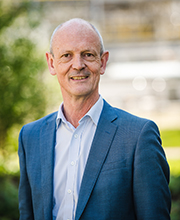
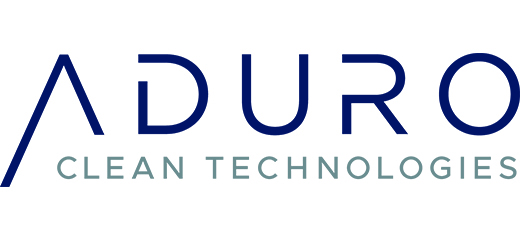
Eric, 60, is a Dutch national, was trained as a chemical engineer, and brings 35 years of experience in the chemical industry in a variety of disciplines and companies. After 3 years with Unilever working on processing edible oils, he switched to Unilever’s chemicals business (later acquired by ICI), working with renewable chemicals in technical-commercial and customer-facing roles for 12 years. Next he was technical director at Sigma Coatings, the second largest European paint company until its acquisition by PPG, for the Marine & Protective coatings business. Eric subsequently became Executive Vice President at Swedish chemical multinational Perstorp, accountable for innovation, market development and corporate strategy, for 8 years. After that he had non-executive roles at some startup companies and spent 6 years as CTO and Marketing & Sales Director at Brightlands Chemelot Campus, a unique and highly successful industrial environment in the Netherlands where more than 100 companies and more than 3000n professionals work on scaling the material and process technologies for the chemical industry of the future (with obviously a lot of focus on electrification, recycling and biogenic raw materials).
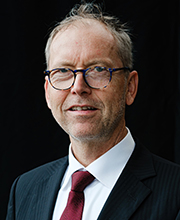
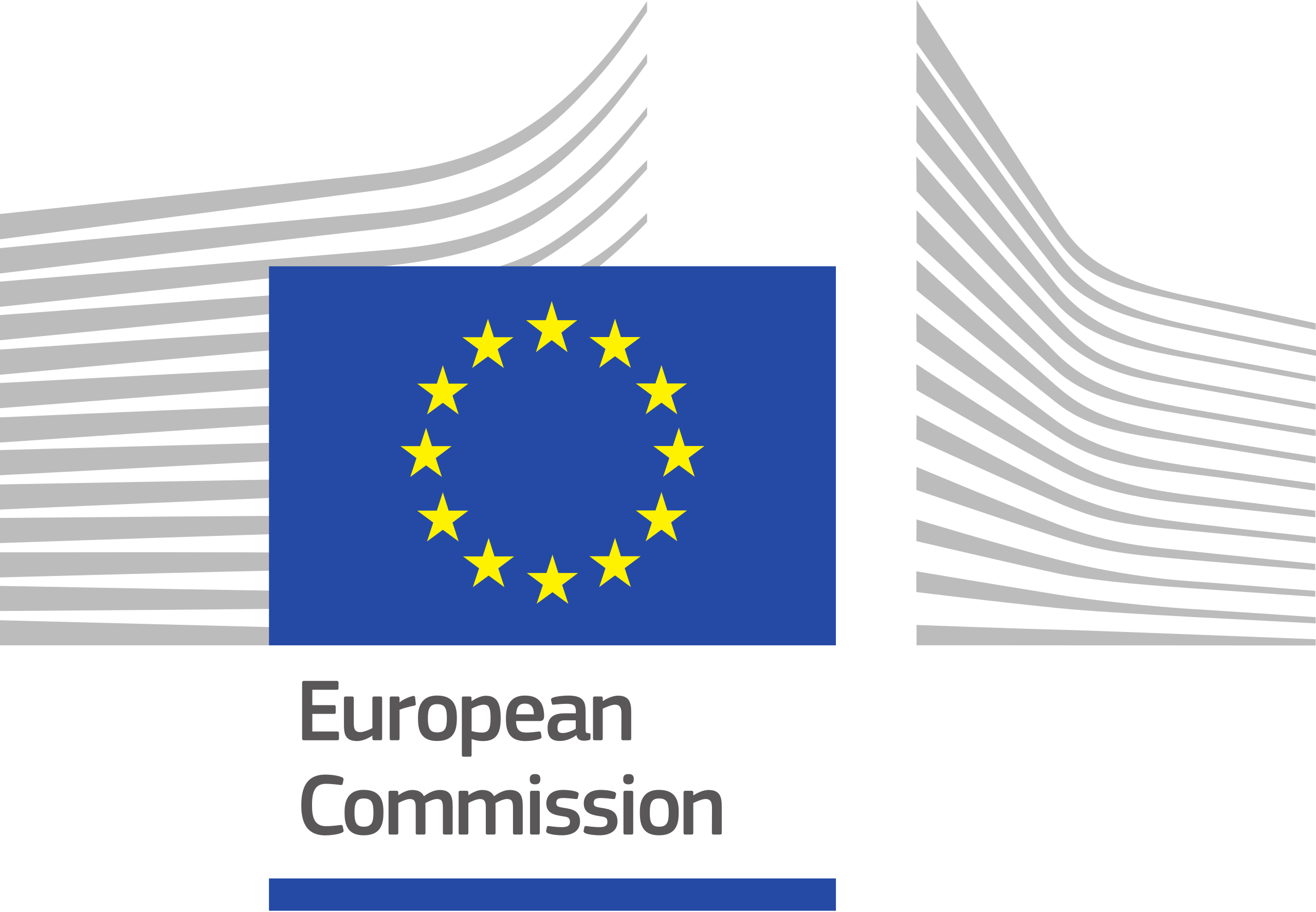
Dr. Wolfgang Trunk is Policy Team Leader for the Packaging and Packaging Waste Regulation at the European Commission. Previously, from March 2005 to January 2022, he was Policy Officer in the fields of official controls of food and feed, feed legislation, sustainability of livestock farming, including fighting food waste at the European Commission’s DG SANTE.
.jpg?ext=.jpg)
.png?ext=.png)
A materials scientist by training, Will has spent over 20 years developing packaging solutions for FMCG companies including P&G, Coty, and Britvic, working on brands as diverse as Ariel, Gucci, and Pepsi. Having joined Diageo into an upstream role last year his focus is now on leading the creation of novel packaging formats to drive long-term sustainability. Current key projects include the development of barrier materials to support implementation of paper bottles through consortium groups, and establishment of future programs for alternative materials.

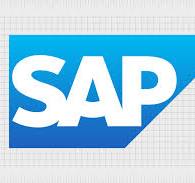
Darren West is SAP’s Global Head of Circular Economy solutions. He works with customers, sales and pre-sales colleagues, product developers and external partners to expand existing and build new sustainability solutions, particular those impacting Circular Economy and Material Transition themes. Darren agrees and manages projects with strategic partners such as the World Business Council for Sustainable Development, the Ellen MacArthur Foundation and World Economic Forum, various academic bodies and major consultancies worldwide. Topics include: sustainable packaging, eco-design, circularity data exchange, digital product passports, and extended producer responsibility.
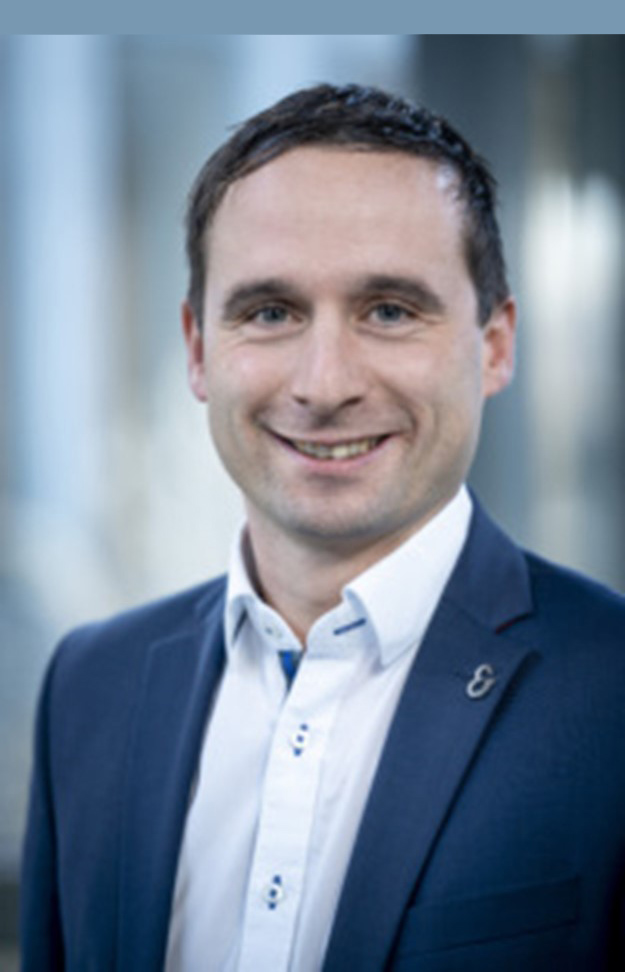

Thomas has over 18 years experience in international sales management in mechanical engineering, marking & coding as well as the printing industry. In 2012 he joined Koenig & Bauer Coding In the position of Area Sales Director for Scandinavia, Eastern Europe, Middle East, South-East Asia as well as Asia-Pacific. In 2015 he took over the responsibility of the Key Account department at Koenig & Bauer Coding and has significantly developed the relationship with global brands in several market segments - especially in the FMCG market. Since 2022 he is part of the Group Sales team of the Koenig & Bauer group and he is taking care of major global brands. Together with Global Brands he is elaborating new solutions for packaging the packaging of the future according to the latest market demands. Even more, he is a member of the 2D expert Group of GS1. Thomas’s expertise spans brand development, variable data printing across the whole supply chain, sustainable solutions, digital printing, marking and coding solutions, printing technologies, customer value, traceability, brand protection, digitalization, connected packaging, smart packaging, TCO solutions and customer experience.


Yaseed Chaumoo is Managing Director at Greyparrot, he leads AI-driven innovation in waste analytics, helping large CPG and FMCG’s to understand post consumption data to drive more sustainable actions. He is a seasoned entrepreneur, AI expert, and investor with a strong background in product development and commercialisation. He co-founded and successfully exited an AI SaaS startup acquired by a FTSE 250 company, and has over a decade of experience in AI, spanning predictive analytics, generative models, and AI adoption strategies.


Adam is responsible for the off-the-shelf market reports business and leads the delivery on many custom market consultancy projects every year.
These projects are built upon robust and consistent secondary data and sense checked through discussions with market and technical experts. Adam spends a lot of time identifying and assessing potential sources of data, and incorporating these sources into a credible forward-looking view of the market.
Adam is experienced in project management, directing market research and working with clients to deliver high-value strategic studies and analysis. During his time at Smithers he has published or delivered hundreds of market studies, reports, technical books and single-client projects across a range of industries.
To assist with this research, Adam has developed a global network of experts, consultants and researchers who contribute to many projects every year.
Adam is a member of the Society of Competitive Intelligence Professionals.
He is based in Leatherhead, UK and has been with Smithers for 20 years.
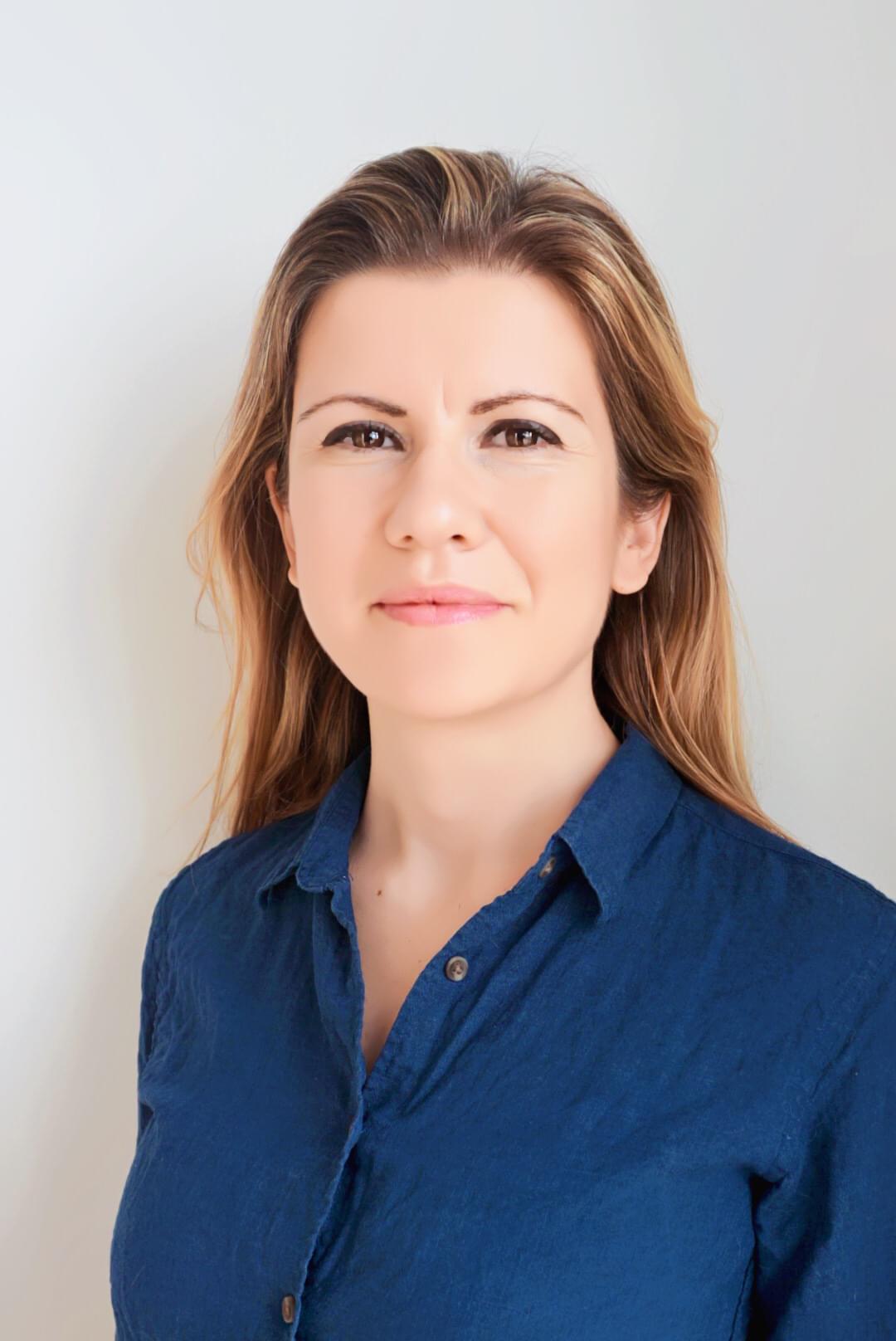
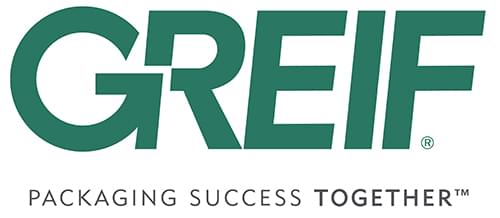
Aysu Katun serves as the Vice President of Sustainability at Greif, bringing over 14 years of experience in the packaging industry. In her role, Aysu leads Greif’s global sustainability strategy, guiding the development and implementation of initiatives that advance Greif’s sustainability goals and ensure the integration of sustainable practices including decarbonization and circularity across the organization. Before joining Greif, Aysu held a variety of positions at Hewlett-Packard. She holds an MBA from the Fisher College of Business at The Ohio State University.


Michelle co-founded Lorax Compliance in 2014 in order to help companies that are obligated under Extended Producer Responsibility and Product Stewardship legislation around the world. With 15 years of experience working in this sector, her focus is to ensure clients find the process of EPR and Stewardship reporting as simple as possible, despite the complexities placed on businesses by legislation. As COO, her role covers the management and delivery of several teams, including Accounts, Compliance, Sales, Marketing and Human Resources.

-520x240.png?ext=.png)
Britta Wyss Bisang is the VP of Sustainability and Strategic MarCom of Schoeller Allibert, the leading supplier of returnable and reusable transport packaging in Europe.
Britta has a 20+ years track record in strategy development, ESG/sustainability programs, communications and change management. She is an expert in corporate sustainability and advocacy for a circular economy and has positioned Schoeller Allibert as a sustainability leader in its industry.
Britta holds an MSc in Environmental Sciences from ETH Zurich and has graduated with an Executive MBA from IMD Business School, Lausanne.


After an internship in packaging, marketing and sales stations at Granini, Bongrain (now Savencia) and Galbani, Peter started his own business in 2001. Since 2008 he has supported clients with a strong focus on sustainability, innovation and differentiation, investing in material, single and reusable options along the entire supply chain.
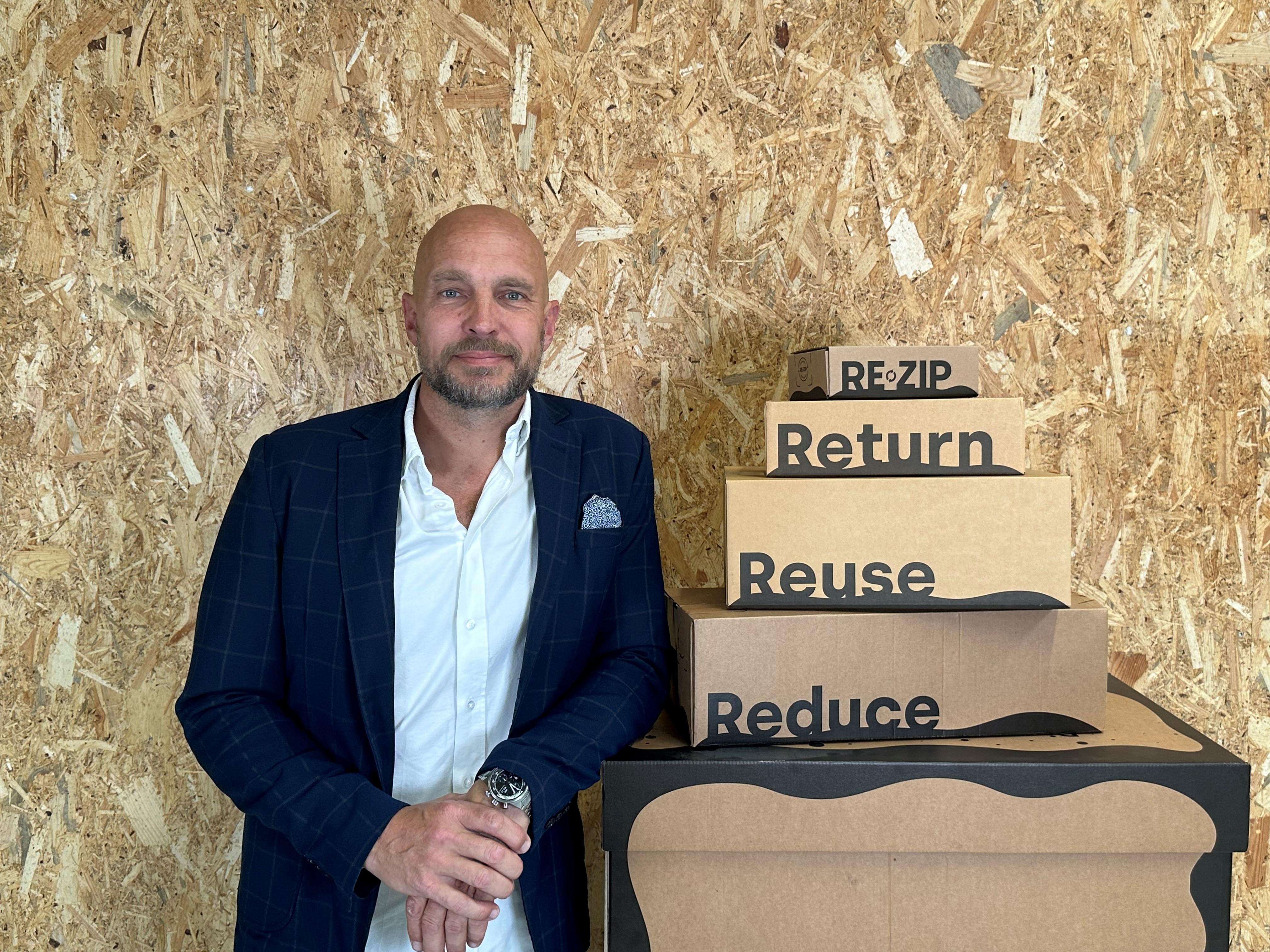

Thomas Fugl is co-founder and CCO at RE-ZIP. Thomas has severe experience within last-mile and infrastructure. And as part of the founder-team at RE-ZIP has set out the change the future of Ecommerce packaging offering state of the art circular packaging concept: System, infrastructure and packaging.


Brought up in a family of printing and paper production and 15 years at H&M HQ marketing department working with innovation, building our supplier network, the startup of our sustainability work and wow with Point of sale material it was a complete match when I started to work with H&M group customer packaging 9 years ago. Taking our innovation and sustainability work within packaging for our stores and growing E-com sales to the next level, setting our packaging strategy and having the possibility of making sure we are leading the way to a more sustainable future is still my passion and the journey has just begun.


Juliette Guérin is an environmental engineer specializing in recyclability, waste management, and sustainable packaging. As Technical & Sustainability Director at FEFCO, she leads industry initiatives, advises policymakers, and develops technical standards. Before joining FEFCO, she spent few years in the waste management industries, with Veolia Group and Reclay Group, where she specialized in packaging recyclability, eco-design and certifications processes among all packaging materials.


Dr. Chantal Semaan received an Honours PhD. Degree in Polymer Science from the University of Bordeaux, France.
She has over 12 years’ experience in product development and technical support aiming to develop and position innovative products in the market of flexible plastic Packaging. Her functional experience includes working at the interface between following departments: research, marketing, regulatory affairs, industrial development, quality and analytical development.
Her employment history is as follows:
Borealis, Spain 2018 to present
Application Technology Manager Consumer Products
Analyze market spaces and trends and design of targeted products. In charge of interdisciplinary projects.
DOW Chemicals Spain, 2013 to 2018,
Senior Technical Service Engineer Packaging & Specialty Plastics
Product development and technical resource for internal and external customers for Plastic Packaging. Technical support together with sales organization to position innovative products in the market and support implementation with customers.
Ceisa Packaging, France 2011 to 2013
Responsible for development of innovative and sustainable packaging for the collation shrink market.
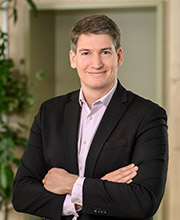
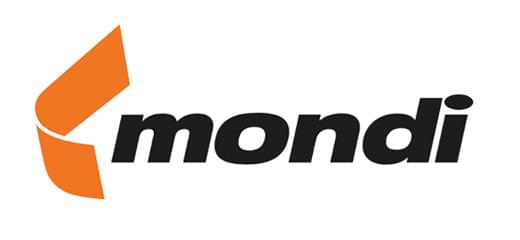
• Carlos Trubacz is a globally recognized sustainability and ESG leader with over 15 years of experience driving systemic change. He currently serves as Head of Product Sustainability for Flexible Packaging at Mondi, where he leads global strategies focused on circularity, climate resilience, and regulatory alignment.
• With a proven track record of delivering high-impact initiatives, Carlos has successfully aligned corporate responsibility with stakeholder value creation across Europe, the U.S., and emerging markets. He is also a frequent speaker at international forums and a passionate advocate for sustainable transformation at scale.
• Carlos holds an MBA, a degree in Industrial Engineering, and executive diplomas in Sustainable Business Strategy and Disruptive Innovation from Harvard Business School.
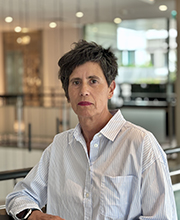
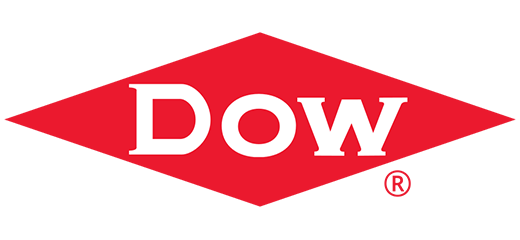
Isabel has held multiple technical roles within the Packaging and Specialty Plastics business, building a strong foundation through global collaborations with major film converters and end-use programs. In her current role, Isabel leads the technical development of sustainable product solutions across EMEA, including Dow’s REVOLOOP™ Recycled Plastic Resin and the Design for Circularity portfolio.


Karnika has over 20 years of experience in B2B business management, ranging from corporate roles spanning across established industries including food, electronics, cleaning, and packaging, to start-ups and business ownership. A passionate believer in collaborative growth, she has consistently maintained an emphasis on scalable innovation that truly makes a difference. Karnika brings a global mindset coupled with an analytical approach, hands-on know-how, and imaginative curiosity.


Jonne believes in creating value through sustainability. He founded a sustainability consultancy Natural Interest Ltd. in 2006 and in 2012 co-founded reusable packaging startup focused on sustainability and simplicity. RePack is an award winning European startup based Helsinki, Finland.